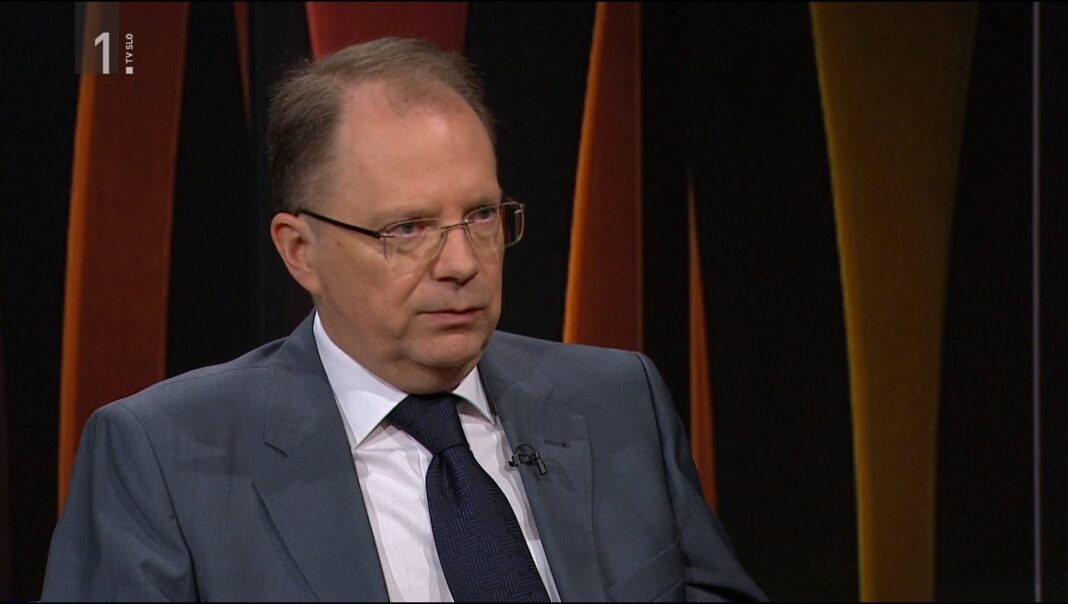By: Domen Mezeg / Nova24tv
“Attacks by the opposition against their own government before the presidency of the EU Council are not common. Exports of crises are possible mainly due to the language barrier, journalists in the EU must rely on a selective set of launched rumours, but they also have their own agenda in the context of political struggle,” said State Secretary for Coordination of International and European Affairs Igor Senčar in the show Interview on Public RTVS. He also added that transitional “directing” has no major effect on Slovenia’s image abroad.
Dr Igor Senčar was a key figure in Slovenia’s presidency of the European Union in Brussels in 2008, and in the Prime Minister’s Office he also coordinates this year’s presidency as State Secretary for Coordination of International and European Affairs. This time he was a guest on the show Interview, hosted by journalist Jože Možina. Among other things, Senčar pointed out that “all past crises have left consequences in the EU, that many tensions have arisen between member states, but hopefully after the end of the covid crisis it will be calmer, as many tasks await us in the EU.”
“Slovenia’s current presidency of the EU Council will be different from the first one due to the Lisbon Treaty, but the changes have brought additional complexity, also due to coordination with the President of the European Council and the High Representative for Foreign Affairs and Defence Policy.” He also said that the threats to the government and Prime Minister Janez Janša, and to all those who identify with this political orientation, give the impression that it is political warfare known from revolutionary and totalitarian regimes based on hatred and civil war.
“Attacks by the opposition against their own government before the presidency of the EU Council are not common. Exports of crises are possible mainly due to the language barrier, journalists in the EU have to rely on a selective set of launched rumours, but they also have their own agenda in the context of political struggle,” Senčar explained about the corruption of the left opposition and its lackey media. He also expressed the belief that the recognition of Prime Minister Janša in Europe is great. According to him, the EU was not prepared for the epidemic, and some countries have already been in trouble since the financial crisis. In this light, the Prime Minister supported several solidarity initiatives: the issuance of Eurobonds at the beginning of the epidemic and a more solidary distribution of vaccines.
Today’s tensions in the EU are also the result of a lack of dialogue and empathy for the situation in other countries
“By advocating for the EU’s post-epidemic recovery to focus on a crucial rather than a highly politicised issue of conditionality, the Prime Minister has contributed greatly to the consensus that the crisis response is fundamentally different from 2008: faster, more united, and more solidary.” According to him, the founders founded the European Union on a humanistic tradition, which mostly originates from a Christian basis, as they wanted to connect very different countries. Today’s tensions in the EU are also the result of a lack of dialogue and empathy for the situation of other countries, including crises.
“Even the core EU countries sometimes have problems with the structure and functioning of the EU, especially in times of crisis, it is difficult to reconcile interests, limit the interests of the strongest members and maintain solidarity.” He also touched upon EU-Russia relations. As he notes, the EU has based its foreign policy on the concept of the so-called soft power and acting by example, but in relations with Russia, this has proven to be not working. Moreover, the EU is also lagging behind in its enlargement to the Western Balkans, so other powers are entering the area. Slovenia’s position is that the EU must in every way re-focus on the countries of the Western Balkans, also in the geopolitical sense, and complete the enlargement process.

